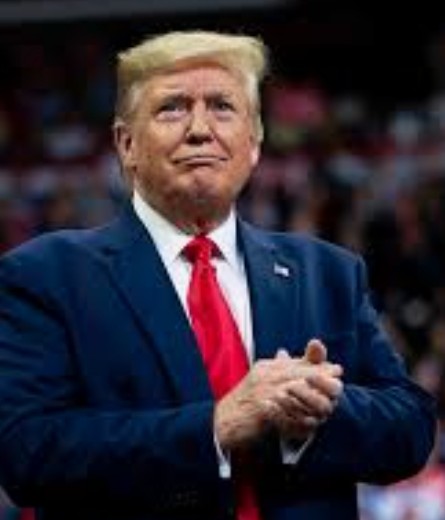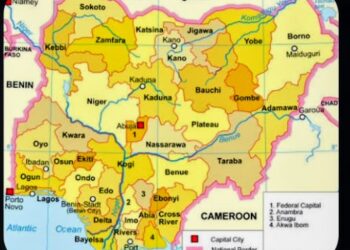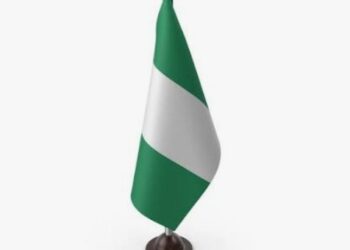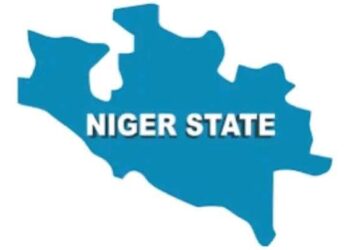Trump, Nigeria, and the Politics of Manufactured Outrage
From :- Baban Khalifa wrote from Minna
The world has seen strange political theatre, but few spectacles can match the return of Donald Trump to the global stage—this time as a self-ordained crusader for Nigerian Christians. Yes, the same Trump who could turn a diplomatic earthquake into a breakfast tweet now wants to save souls in Nigeria. One almost expects him to show up at the gates of Aso Rock, Bible in one hand, sanctions in the other, declaring, “Let my Christians go!”
But before we all grab our popcorn, let’s look beyond the performance. Trump’s sudden moral thunderbolt—that Nigeria is a “country of particular concern” and that “thousands of Christians are being slaughtered by radical Islamists”—deserves a deeper reading. He is not wrong that Nigeria bleeds. He is simply wrong about who is doing the bleeding and who benefits from the wound.
Let’s be clear: Nigerians—Christians, Muslims, traditionalists, and even the godless—share one faith: survival. Under the reign of insecurity, everyone is a target. Churches have been bombed, yes; so have mosques, markets, and schools. From Potiskum to Mazakuka, from the ashes of the Kano Central Mosque to the ruins of St. Francis Church, the blood that stains our soil does not ask for a baptismal certificate before it flows.
If Trump’s advisors had shown him Abba Hikima’s research on terror attacks targeting Muslims in Nigeria—a chilling record of massacres from 2009 to 2025—perhaps he would have discovered that Boko Haram’s bullets and bandits’ guns are remarkably inclusive in their cruelty. For every Christian tragedy Trump tweets about, there is a Muslim village mourning in silence. The Nigerian poor, irrespective of creed, are the ones dying; the ruling class, irrespective of religion, are the ones flying.
So, when Trump mounts the pulpit of Truth Social to weep for Nigeria’s Christians, forgive us if we ask: where were these tears when American bombs fell on Iraqi churches? Or when Palestinian Christians, yes, the original followers of the Nazarene, were being crushed beneath Israeli tanks in Gaza—the same Israel his political allies defend with evangelical zeal? If Trump truly seeks to emancipate Christians, he might begin in Bethlehem, not Abuja.
The problem with moral crusades is that they often mask political ambition. When Trump thunders about “radical Islamists,” one hears the ghost of 2003 whispering “weapons of mass destruction.” It’s the same script: exaggerate a humanitarian crisis, frame it as a religious or moral duty, and voilà—justification for intervention is born. Yesterday it was Iraq; today it’s Nigeria. Different geography, same soundtrack.
In truth, Trump’s declaration has less to do with faith and more to do with force. It serves notice that Washington’s new sheriff has a target board again. Yet, Nigerians know the difference between a saviour and a salesman. When American leaders start seeing Africa through the lens of “Christian persecution,” one must check for oil fields, strategic interests, or electoral maps painted in evangelical red.
Let’s not forget: this moral outrage comes from a political culture that has never met a convenient ally it couldn’t sanctify. While Trump bemoans Nigerian “Christian genocide,” his administration cuddles up to governments that openly suppress entire faiths. Israel’s destruction of Gaza’s churches and Christian communities is not hearsay—it’s documented by the Higher Presidential Committee for Church Affairs in Palestine and noted in international indictments. But in Trump’s world, those Christians don’t count; perhaps they aren’t the right denomination.
So, Mr. President, if your compassion is truly universal, start where your influence is greatest—by demanding that your friend in Tel Aviv stop bombing the followers of Christ. You cannot be the global shepherd while your allies are slaying the sheep.
Trump’s current posture also echoes a familiar playbook: the Western obsession with “regime change.” Former President Goodluck Jonathan’s own revelations about Barack Obama’s administration are instructive. In 2015, the U.S. practically campaigned for his removal, with Obama himself issuing a video that politely nudged Nigerians toward the “preferred” candidate. The message was clear: democracy is sacred—unless it produces someone Washington dislikes.
That same mood is creeping back. Analysts rightly note that Trump’s threats of sanctions and “possible military action” will not hurt ordinary Nigerians; they will rattle the ruling elites. And therein lies the irony: while the Nigerian political class hides behind religious rhetoric, they are the true architects of the insecurity now weaponised by foreign narratives. They built the chaos; Trump is merely using it as a microphone.
Every time the U.S. gears up for confrontation, it begins with a sermon. There is always a moral fig leaf—genocide, WMDs, democracy, religious freedom—to justify geopolitical ambition. Nigeria must resist becoming another canvas for this script. The truth is messy but not mysterious: our security failures are homemade, our divisions internally fertilized by greed and misgovernance, and our redemption cannot be imported on the wings of American exceptionalism.
Trump’s statement, amplified by conspiracy theories and prophetic warnings (Primate Ayodele’s among them), reveals how fragile Nigeria’s narrative space has become. Between our domestic incompetence and international opportunism lies the dangerous zone where perception becomes policy. In such times, both humility and humour are weapons of defense.
If Trump genuinely seeks to be Nigeria’s friend, let him drop the robe of a religious warlord and pick up the mantle of a humanitarian ally. The Nigerian masses—Christian, Muslim, or otherwise—will welcome any leader who stands against oppression, corruption, and state-induced suffering. But if his aim is to draw battle lines between believers, then, sorry, we’ve seen that movie before. And the ending is always tragic.
Nigeria does not need pity; it needs partnership. Our people are tired of being global talking points and domestic casualties. The world must understand that faith-based violence here is not a clash of religions—it’s a symptom of failed leadership, economic despair, and foreign manipulation.
So, Mr Trump, before you march your War Department towards the Gulf of Guinea, consider this: even the angels of peace in Palestine are bleeding. The Christians you claim to defend are not only in Nigeria—they are in Gaza, hiding under rubble from bombs made in the factories of your allies.
If you truly want to save souls, start with conscience. Because, in the end, the real struggle is not between Islam and Christianity—but between humanity and hypocrisy.

















